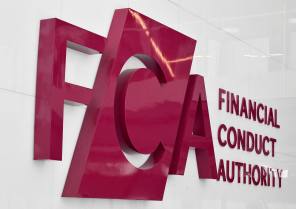

On Monday (8 May) Apfa and Wealth Management Association members were asked to give the go-ahead to a merger of the two trade bodies to form the Investment Management and Financial Advice Association.
Speaking to FTAdviser, Ms Field – who is currently chief executive of the Wealth Management Association – said she would be clear in what the new trade body had achieved and what members could expect in the next 12 months.
Ms Field said every year she produces a dear CEO letter for WMA members along with their annual invoice and on this she itemises all the things that have been achieved for firms in the last year.
Apfa members, if they vote to merge with the WMA on 23 May, will now also get this itemised statement moving forward.
Ms Field said she would also spell out when requesting membership fees for the year ahead what the focus of the trade body would be for the next 12 months.
When quizzed on what victories she has achieved as head of the Wealth Management Association, Ms Field said she had been extremely active in Europe and there had been “notable wins”.
She pointed to key information documents, and the fact at one point the European Union had been pushing for this piece of paperwork to be made available to everybody before a trade could be executed.
Ms Field said: “That (requirement) would have completely killed the execution-only space, which is a huge piece of business for the financial services sector and for individuals to be able to access their stocks and investments.
“Getting that requirement changed was a key achievement over the last few years.”
On how to change watchdog’s minds, Ms Field said: “At European level and within the main regulator we are the only one among 14 trade associations that talk about the private investor. That gives us a slightly different voice.
“When the Brexit vote came through we were contributing to the financial services asks.
“You have the large funds, the large banks talking about impact on GDP, etc. What the MPs want to hear is the ordinary people’s stories. That is where we come to the fore.
“The combined membership of WMA and Apfa will be able to provide real value. It is about ordinary people and ordinary voters.”
When asked would she go out and meet financial advisers, as Apfa’s director general Chris Hannant has done, Ms Field said she lives in Derbyshire so can travel around from the centre of the country.
She said: “You won’t find me at my desk 24/7 in London.”
In terms of her knowledge of financial advisers and how they work, Ms Field said her background before the WMA was she worked for the Financial & Legal Skills Partnership.
At that organisation, Ms Field said she had a specific financial adviser committee that looked at the skills and business issues of the sector “so I already have experience within the financial adviser community.”
Plus, Ms Field said the WMA was a small business itself “like many financial advisers.”
Mr Hannant said Ms Field was aware of the shared concerns of both the WMA and Apfa’s membership – the bulk and volume of regulation plus the liability of which regulatory bills are part of.
Asked what would she see as the criteria for the merger of Apfa and the WMA being successful, Ms Field said members should feel they have gained value from membership of the trade body
She said: “We will still be out there flying the flag for the sector. We are actively promoting the sector and fundamentally we are explaining how important the sector is for the financial wellbeing of individuals.”
However Garry Heath, director general of rival trade body Libertatum, was cynical about whether the new trade body would attract more interest and engagement from advisers than Apfa managed to.
He said: "If they cannot attract support from advisers when they concentrate on them how will they attract them when they are only part of a 20 per cent ghetto?"
emma.hughes@ft.com



